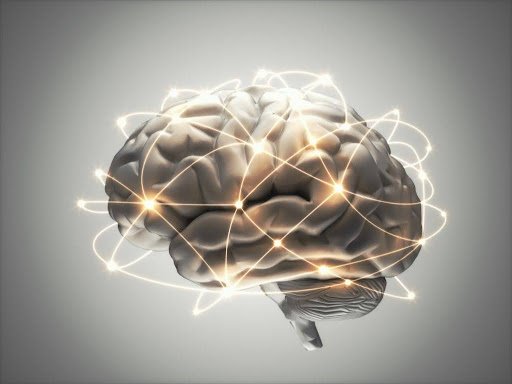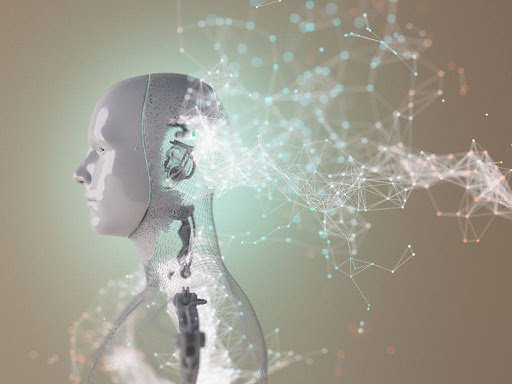The Impact of Artificial Intelligence on the Design Consulting Industry in 2025 is profound and far-reaching. Artificial Intelligence (AI) has moved beyond theory and experimentation. In 2025, it stands as an integral tool driving transformation across industries—from finance and education to healthcare and logistics. The design consulting industry is no exception.
The impact of artificial intelligence on the design consulting industry in 2025 is profound. It is redefining workflows, enhancing research capabilities, and expanding the role of design consultants. This blog explores how AI is shaping the future of design consulting, what opportunities it offers, and how firms can strategically align themselves to stay relevant in this evolving landscape.
Why AI Is Reshaping Design Consulting in 2025
Several key factors are accelerating AI adoption within the design sector:
- Increased speed and output efficiency
- Deep personalization of user experiences
- Data-backed design decisions
- Lower operational costs with scalable output
As a result, the impact of artificial intelligence on the design consulting industry in 2025 is being felt across all stages of the design process, from discovery to delivery.
AI Integration in Design Consulting Workflows
Automating Visual Design Tasks
AI-driven tools such as Adobe Sensei, Midjourney, and Canva AI are automating repetitive design functions, enabling firms to:
- Automatically generate layout variations
- Suggest intelligent color combinations
- Perform image editing and tagging through recognition systems
This automation not only saves time but also allows design consultants to focus on higher-level creative and strategic tasks.
Streamlining Content Design and Messaging
Tools like ChatGPT and Jasper are widely used to create:
- UX copy and micro-interactions
- Product descriptions and landing page content
- Brand voice guidelines tailored to target demographics
These advancements further illustrate the growing impact of artificial intelligence on the design consulting industry in 2025, where written content and design are seamlessly connected.

Transforming Research and User Insights
AI is revolutionizing research processes by offering capabilities such as:
- Large-scale behavioral analytics
- Heatmap analysis for interface testing
- Real-time generation of user personas based on live data
This ensures more accurate, data-backed design decisions that reduce the guesswork in early-stage design.
Some AI tools with the above capabilities are as follows:
1. Large-scale Behavioral Analytics
- Mixpanel
Tracks user interactions at scale, helping product teams understand how users navigate and engage with digital products. - Amplitude
Offers deep behavioral analytics and cohort analysis with predictive insights powered by machine learning. - Heap
Automatically captures every user interaction and uses AI to identify meaningful patterns and friction points.
2. Heatmap Analysis for Interface Testing
- Hotjar
Provides AI-enhanced heatmaps, scroll maps, and session recordings to visualize how users interact with websites and apps. - Crazy Egg
Uses AI to generate heatmaps, click reports, and user session replays for quick UI/UX insights. - FullStory
Goes beyond basic heatmaps by using AI to detect frustration signals (like rage clicks) and opportunities for UI improvement.
- Real-time User Persona Generation
- Delve AI
Automatically generates user personas based on real-time analytics, web traffic, and customer data. - UXPressia
Offers AI-powered persona creation tools that integrate live user data from platforms like Google Analytics and CRM systems. - Personify XP
Uses AI to dynamically create behavioral personas and personalize digital experiences in real time.
Evolving Creative Roles Within Design Consulting
Shifting from Execution to Strategy
AI’s integration into design workflows is changing the traditional definition of creativity. Design consultants are transitioning from production roles to strategic and human-centered responsibilities such as:
- Curating and refining AI-generated outputs
- Driving brand storytelling and emotional design
- Leading workshops on user empathy and design ethics
Thus, the impact of artificial intelligence on the design consulting industry in 2025 is not about replacing human designers but empowering them to contribute where human intelligence matters most.
Merging Design Thinking with AI
Design thinking frameworks are being enhanced with AI capabilities across all phases:
- Empathize – Sentiment analysis and review mining tools assist in understanding user emotions.
- Define – AI identifies problem patterns faster with structured and unstructured data.
- Ideate – Creative AI tools generate multiple ideas in real time.
- Prototype – Platforms like Uizard and Figma AI transform sketches into functional wireframes instantly.
- Test – A/B testing tools deliver real-time feedback based on AI-driven simulations.
When applied effectively, these enhancements reinforce the impact of artificial intelligence on the design consulting industry in 2025 by amplifying every stage of the innovation process.
Leading AI Tools Used in Design Consulting Today
Design consulting teams in 2025 are utilizing a diverse toolkit to drive results. Some of the most impactful tools include:
| Tool | Functionality |
| Runway ML | AI for motion graphics and video editing |
| Figma AI | Intelligent layout suggestions and content assistance |
| Uizard | Converts rough ideas into interactive UI prototypes |
| ChatGPT / Jasper | Content and UX writing assistance |
| Midjourney / DALL·E | Visual asset creation and concept generation |
| Designify | Background editing and brand optimization |
The widespread adoption of these tools reinforces the growing impact of artificial intelligence on the design consulting industry in 2025 by enhancing productivity and expanding creative potential.
Addressing Ethics, Ownership, and Bias in AI-Driven Design
Navigating Copyright and IP Ownership
As AI-generated content becomes common, questions around intellectual property have become more pressing. Design firms must ensure:
- Transparent AI usage terms in client contracts
- Ownership guidelines for AI-assisted work
- Collaboration with legal teams to clarify content rights
Identifying and Mitigating Algorithmic Bias
Bias in AI-generated content is a known concern. Outputs can unintentionally reflect outdated or discriminatory patterns. Design firms now actively:
- Audit datasets used by AI tools
- Validate personas and imagery for cultural sensitivity
- Build inclusive practices into the AI-assisted design process
These considerations further demonstrate the complex impact of artificial intelligence on the design consulting industry in 2025, particularly in terms of its legal, ethical, and cultural dimensions.

Enhancing Client Engagement Through AI
AI supports client collaboration and project delivery by:
- Generating predictive visuals and data trends for presentations
- Offering dynamic simulations that demonstrate user interactions
- Streamlining feedback collection and integration
With these capabilities, clients gain more clarity and confidence in proposed designs, leading to quicker approvals and stronger relationships.
Preparing Design Teams for the AI Era
Core Competencies for Designers in 2025
Design consultants are now expected to expand their skill sets to include:
- AI tool literacy – Understanding the capabilities and limitations of various platforms
- Prompt engineering – Communicating with generative models effectively
- Ethical awareness – Recognizing potential bias and safeguarding inclusion
- Human-centered strategy – Translating AI insights into meaningful experiences
Design education programs are evolving to include these elements as part of their curriculum, aligning with the long-term impact of artificial intelligence on the design consulting industry in 2025.
Recognizing AI’s Limits — and the Irreplaceable Human Element
Despite its advantages, AI remains a tool, not a replacement for human empathy, intuition, or lived experience. Key areas where human designers continue to excel include:
- Interpreting cultural and emotional nuance
- Building empathy-driven, inclusive narratives
- Making intuitive design decisions in uncertain contexts
The most effective outcomes arise from human-AI collaboration, not automation alone. Firms that embrace this balanced approach are best positioned to lead the design landscape of the future.
Looking Ahead: Key AI-Driven Design Trends
The design consulting industry can expect several emerging trends to continue shaping the space beyond 2025:
- Real-time AI brainstorming tools enabling collaborative ideation
- Hyper-personalized digital experiences using adaptive design frameworks
- Voice and gesture-based interfaces simplify creative workflows
- AI-assisted accessibility audits ensuring compliance and inclusion
- Rise of cross-functional roles like AI Design Strategists and Ethical Design Analysts
Each trend strengthens the overall impact of artificial intelligence on the design consulting industry in 2025, emphasizing the need for adaptability and innovation.
Conclusion: A Defining Moment for Design Consulting
AI is redefining how design consulting firms operate, collaborate, and innovate. It is not displacing human creativity—it is amplifying it. By integrating AI thoughtfully, firms can unlock new levels of efficiency, empathy, and innovation.
Summary Highlights:
- AI enhances design speed, personalization, and research
- Design roles are evolving toward strategy, ethics, and storytelling
- AI tools strengthen design thinking frameworks
- Ethical responsibility remains critical in AI-assisted workflows
- Future-ready designers combine technical literacy with human insight
The impact of artificial intelligence on the design consulting industry in 2025 is substantial and growing. Design consulting firms that proactively adapt will not only remain relevant but will lead the way in shaping the future of design.
Stay informed with the latest in AI and design innovation.
Subscribe to our insights newsletter to receive research, trend reports, and strategic advice for the next era of design.
About the author
 A Haryanvi by origin, an entrepreneur at heart, and a consultant by choice, that’s how Ajay likes to introduce himself! Ajay is the founding partner of Humane Design and Innovation Consulting (HDI). Before embarking on HDI, Ajay established the Design Thinking and Innovation practice at KPMG India, laying the foundation for his later venture. His 16+ years of professional career span various roles in product and service design, conducting strategy workshops, storytelling, and enabling an innovation culture. He has coached 50+ organizations and 2000+ professionals in institutionalizing design and innovation practices. He loves to blog and speak on topics related to Design Thinking, Innovation, Creativity, Storytelling, Customer Experience, and Entrepreneurship. Ajay is passionate about learning, writing poems, and visualizing future trends!
A Haryanvi by origin, an entrepreneur at heart, and a consultant by choice, that’s how Ajay likes to introduce himself! Ajay is the founding partner of Humane Design and Innovation Consulting (HDI). Before embarking on HDI, Ajay established the Design Thinking and Innovation practice at KPMG India, laying the foundation for his later venture. His 16+ years of professional career span various roles in product and service design, conducting strategy workshops, storytelling, and enabling an innovation culture. He has coached 50+ organizations and 2000+ professionals in institutionalizing design and innovation practices. He loves to blog and speak on topics related to Design Thinking, Innovation, Creativity, Storytelling, Customer Experience, and Entrepreneurship. Ajay is passionate about learning, writing poems, and visualizing future trends!



